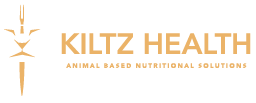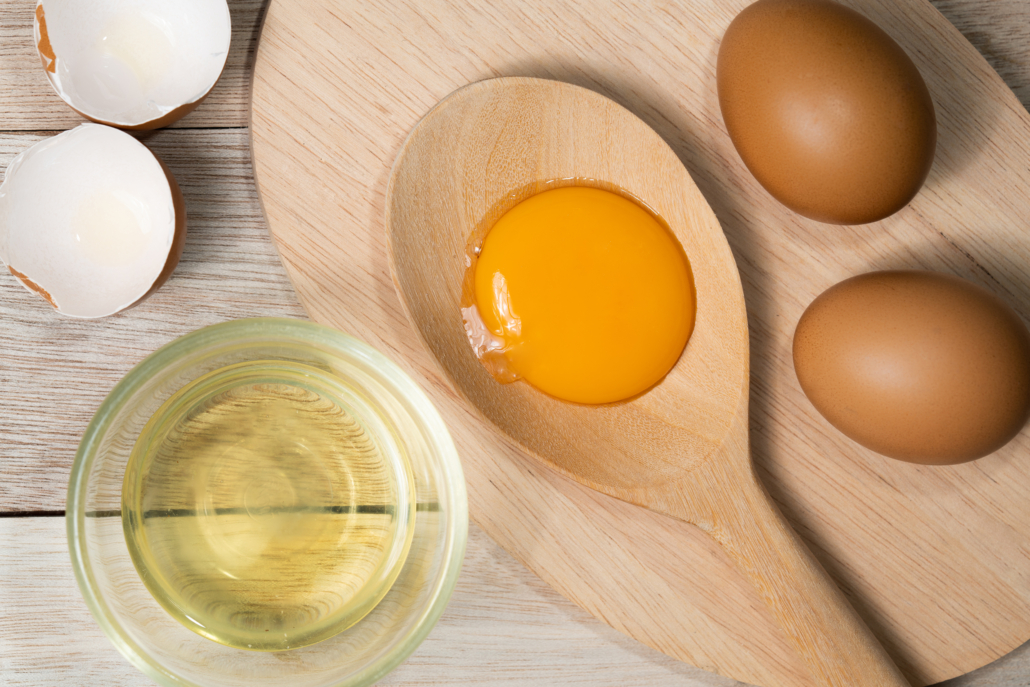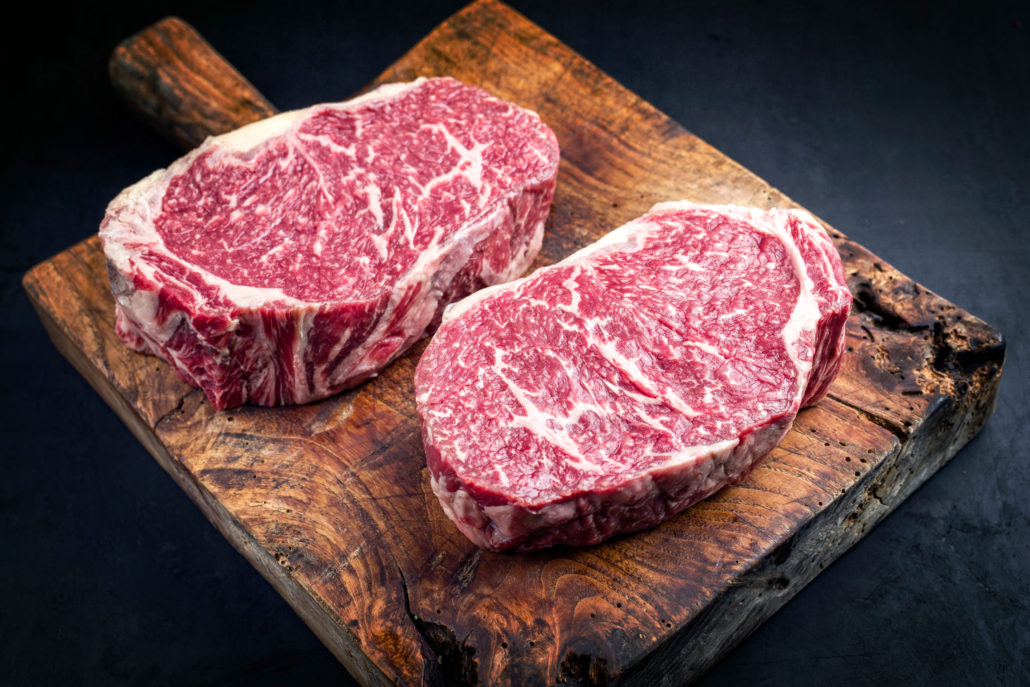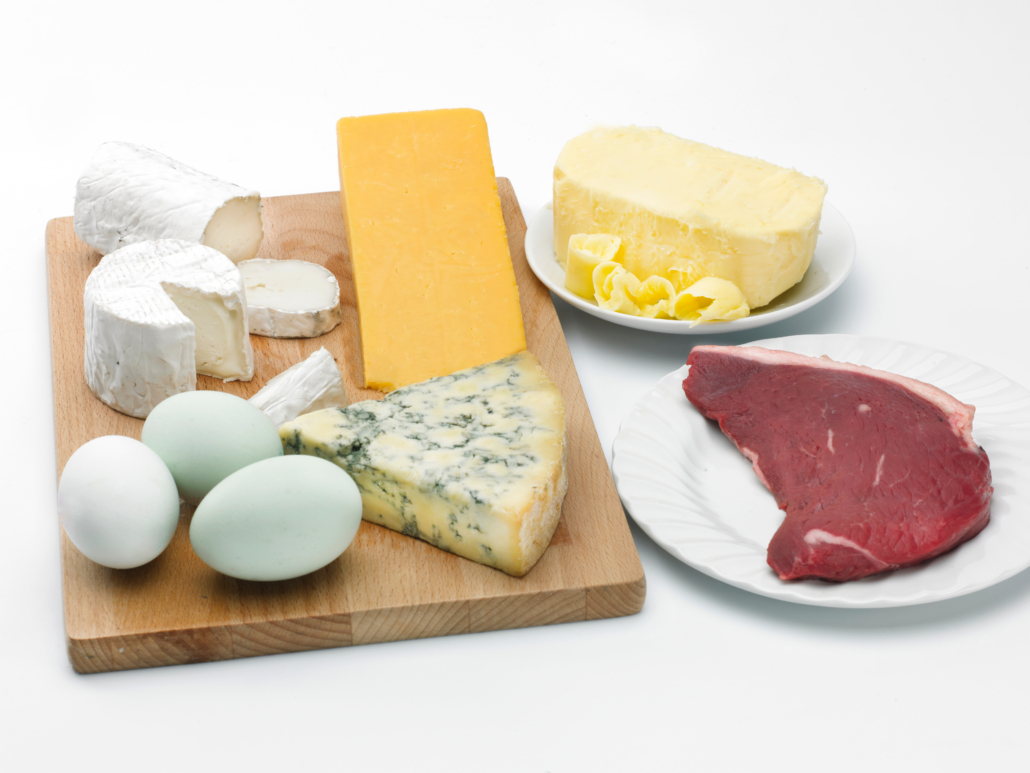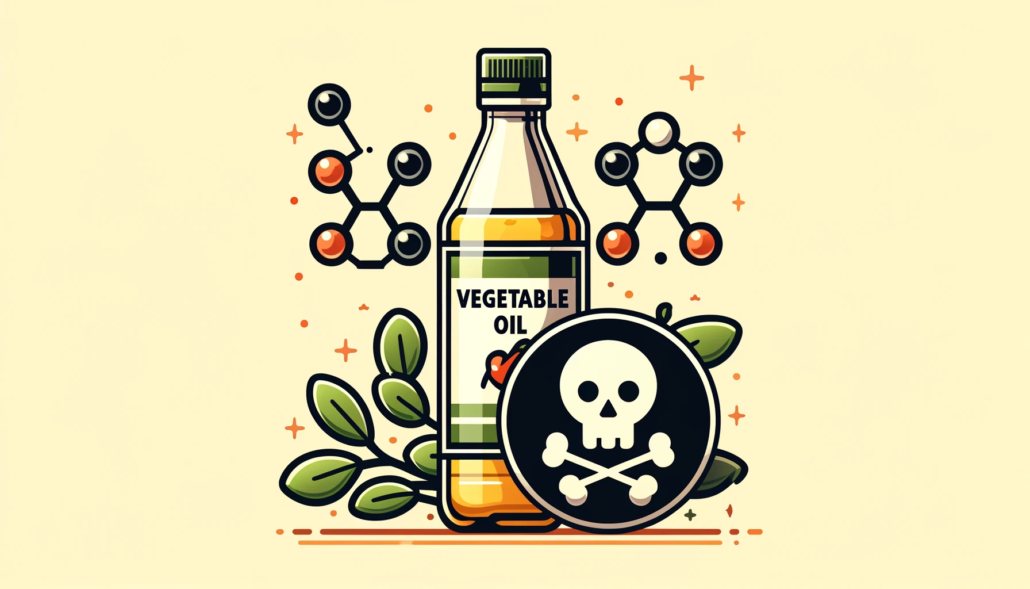We include products in articles we think are useful for our readers. If you buy products or services through links on our website, we may earn a small commission.
Top 10 Benefits of Eating Liver: Nature’s Multivitamin
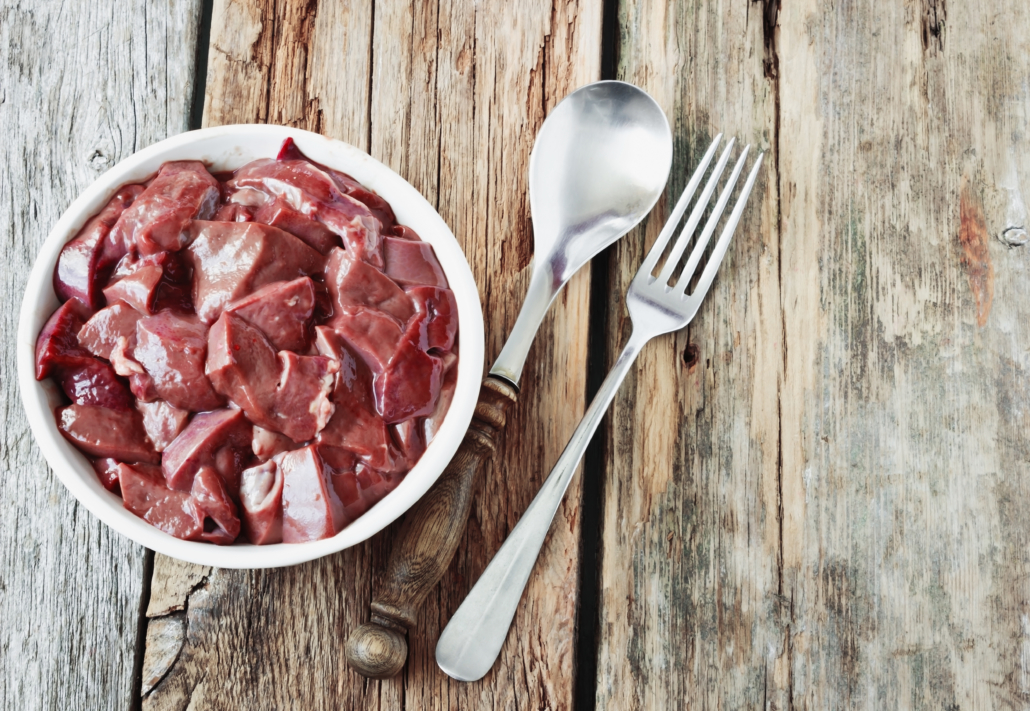
Liver is one of the most nutrient-dense foods on earth, and the benefits of eating liver are directly related to this incredible nutrient abundance.
Liver is the world’s most concentrated source of vitamin A and one of the top sources of vitamin B12. These two nutrients alone would make liver a bonafide superfood even before considering the robust amounts of heme, iron, choline, copper, and other important B vitamins.
Liver also provides an as-yet-to-be-identified anti-fatigue factor that makes it a favorite among endurance athletes.
In this article, we’ll explore how liver’s unparalleled complex of nutrients can directly translate into tangible health benefits.
Table of Contents
- The Best Types of Liver to Eat
- 1 Increased Stamina
- 2 Supports Mental Health
- 3 Supports Bone and Dental Health
- 4 Anti-Cancer Properties
- 5 Supports Heart Health
- 6 Supports Cognition
- 7 Supports Gastrointestinal Health
- 8 Supports Eye Health
- 9 Supports Immune Function
- 10 Enzymes That Support The Health of Your Own Liver
- Bonus: A Source of Dietary Nucleic Acids
- How Often Should You Eat Liver to Get These Benefits?
- Liver Nutrition
- Liver Compared to other So-Called Superfoods
- Recommended Supplemental Sources Of Liver
- Top 10 Benefits of Eating Liver: The Bottom Line
The Best Types of Liver to Eat
There are numerous types of liver you can eat, and each has a unique nutrition profile. That said, all types of liver tend to be rich in vitamin A, B vitamins, and liver-specific peptides.
Popular edible types of liver, include:
- Beef liver–the most accessible type of liver, loaded with vitamins B12, A, K2, copper, and zinc. A complete superfood.
- Lamb liver–one of the most concentrated animal sources of selenium, 200% RDI per 100 grams.
- Pork liver–higher in selenium than beef or chicken liver. Selenium is a thyroid-boosting mineral that plays important roles in regulating immunity and facilitating DNA production. [1]
- Duck liver–At 1330% of your RDV of vitamin A per 100 grams, duck liver is one of nature’s most potent sources of this nutrient.
- Chicken liver–one of the best animal sources of vitamin C, with 30% RDI per 100-gram serving.
- Goose liver–100 grams of goose liver pate has 369 mcg or 308% of the RDI of vitamin K2, which is crucial for bone, dental, and heart health.
1 Increased Stamina
Liver is famous for its stamina-boosting x-factor. Scientists still haven’t isolated why the liver is so energizing. And it’s not the incredibly high levels of vitamin B.
The stamina-boosting effects of eating liver were publicized in a 1975 article in Prevention Magazine.
The article described an experiment where the endurance of three groups of rats was tested by subjecting them to swimming in a barrel of water.
The first group of rats wasn’t fed anything. The second group was given B vitamins. And the third group was fed powdered liver.
The group fed no food swam for an average of 13.3 minutes. The group fed B vitamins swam for 13.4 minutes on average.
Of the twelve rats fed liver, one swam for 63 minutes, another for 83 minutes, and a third for 87 minutes. And the remaining nine rats were still swimming when the test ended after 2 hours (120 minutes). [2]
2 Supports Mental Health
As one of nature’s most concentrated sources of vitamin B12, liver can provide antidepressant properties.
A 2013 randomized control trial found that supplementation of Vitamin B12 significantly improved depressive symptoms. [3]
The dose of vitamin B12 you get from liver is even greater than standard supplementation. But this is one vitamin where you don’t have to worry about overdoing it. Your body will store excess vitamin B12 in the liver and access it when needed.
A 100-gram serving of liver also provides around 50% of your RDI of zinc. Zinc is another micronutrient that has been shown to provide antidepressant properties.5
3 Supports Bone and Dental Health
Beef liver is one of the world’s most concentrated sources of vitamin K2, with 106 mcg, or 88% of your DV in K2 per 100 grams. While goose liver is king with over 300% RDI per serving.
K2 has been shown to activate the protein osteocalcin, which stimulates the production of dentin–the calcified tissue beneath teeth enamel. [4] [5] [6]
Additionally, K2 activates matrix GLA, another protein that binds calcium to bones. [7] [8]
A study of 244 postmenopausal women (high risk of osteoporosis) found that supplementing with K2 significantly reduced age-related bone mineral density loss. [9]
4 Anti-Cancer Properties
Two clinical trials have shown that vitamin K2 can reduce the recurrence of liver cancer while increasing survival time. Yet another instance where organ meats demonstrate a “like-supports-like” effect, by benefiting the corresponding organ in your body. [10] [11]
A large observational study with 11,000 men found that participants who consumed high amounts of K2 had a 63% lower risk of advanced prostate cancer. In this same study, K1, the version you get from plant foods, showed no effect. [12]
A comprehensive 2021 review found that the antioxidant properties of vitamin A make it powerfully effective against various cancers.5
5 Supports Heart Health
Studies show that K2 found in liver can prevent the calcification of blood vessels, arteries, and kidneys. [13] [14] [15]
One long-term study following participants for 7–10 years, found that people who ate the highest amounts of K2 were 52% less likely to develop artery calcification and at a 57% lower risk of mortality from heart disease. [16]
Additionally, B12 has been shown to provide cardioprotective properties by decreasing homocysteine levels associated with heart disease. [17] [18] [19]
Zinc functions as a powerful antioxidant that helps fight oxidative stress and reduce inflammation associated with atherosclerosis and related cardiac disorders, cancer, neurodegeneration, immunologic disorders, and the aging process itself. [20]
6 Supports Cognition
Eating liver provides numerous micronutrients associated with healthy cognitive function, including:
- Selenium
- Copper
- Niacin (Vitamin B3)
- B12
- Choline
- Iron
Research shows that as selenium levels decrease with age they may contribute to declines in cognitive function. [21]
Copper has also been shown to support cognition up to a specific inflection point. [22] [23]
Niacin (B3) has also been shown to support cognitive functioning, while a deficiency can lead to memory impairment. [24]
Proper iron intake is associated with better attention, concentration, and memory. [25] [26]
7 Supports Gastrointestinal Health
A 100-gram serving of beef liver provides around 550% RDV of your vitamin A.
Vitamin A enforces the mechanical barrier function of the skin and inner linings of the body.
These benefits can be especially important for intestinal health since most of the high-carb and plant-based foods in the modern diet promote the deterioration of the intestinal lining, leading to a condition called intestinal permeability, or “leaky gut.”
When the intestinal barrier is breached, harmful pathogens, including carbs, plant toxins, and pesticides, can enter the bloodstream and travel to nearly every other part of the body, resulting in widespread chronic inflammation.
The ability of vitamin A to heal the intestinal barrier prevents the passage of harmful pathogens into tissues and the bloodstream. [27]
8 Supports Eye Health
Vitamin A in liver is critical for healthy vision, while vitamin a deficiency can lead to night blindness, inflammation of the eye, and general degradation of vision. [28] [29]
It’s important to highlight that vitamin A in liver comes in a bioavailable form called retinol. In addition to healthy eyes, vitamin A supports healthy skin, physical growth, and fertility. [30] [31] [32] [33] [34]
And make no mistake, the vitamin A precursor found in plant foods like carrots is nearly worthless. In 55% of people, only a very small percentage is absorbed by the body. While 45% of people aren’t able to convert and use any plant vitamin A. [35]
In addition to vitamin A, zinc has been shown to support healthy eye function by reducing degenerative oxidation and inflammation. [36]
9 Supports Immune Function
Vitamins B12, K2, and vitamin A have all been shown to significantly support healthy immune function and reduce inflammation. [37] . Clin Calcium. 2005 Apr;15(4):605-10. Japanese. PMID: 15802772.”/] [38] [39]
While the zinc you get from liver is used by the body to activate T-cells that play a critical role in immune response. Low zinc levels are associated with numerous illnesses. [40]
10 Enzymes That Support The Health of Your Own Liver
Liver contains numerous organ-specific enzymes. One enzyme in particular, cytochrome P450, has been shown to support hormone production, detoxification, and the healthy functioning of your own liver. [41]
Bonus: A Source of Dietary Nucleic Acids
You won’t see these on nutrition labels, and your body generally makes enough, but in times of stress and healing, it may be important to get nucleic acids through your diet.
Nucleic acids in liver can support numerous physiological processes, including [42] [43]
- Immune function
- Digestion
- Muscle recovery
- Reduced inflammation
- Reduced oxidative stress
- Proper metabolism
How Often Should You Eat Liver to Get These Benefits?
Because most edible liver is very high in vitamin A, it’s important to treat liver more as a supplement than a main course.
Vitamin A is fat-soluble, which means that it can accumulate in your own liver. An overabundance of vitamin A can cause health issues, including liver damage and birth defects.
It is also possible to consume too much Iron.
For these reasons, we recommend consuming up to 100 grams of beef, lamb, bison, or duck liver 1-3 times per week.
Chicken liver has less vitamin A and may be consumed 3 to 4 times per week.
Because liver is so rich in nutrients, it is important to see if any supplements you are taking also provide nutrients that are already high in liver.
However, the symptoms of eating too much liver are slow and chronic slow or chronic, rather than acute.
Liver Nutrition
For your reference, here’s the complete nutrition guide for beef liver.
| Beef Liver | ||
|---|---|---|
| Based on 100 grams | ||
| Calories | 135 | |
| Fat | 3.6g | |
| Protein | 20.4g | |
| Net Carbs | 3.9g | |
| Vitamins | %Daily Value | |
| Vitamin A Vitamin B6 Vitamin B12 Thiamine Riboflavin B2 Niacin Folate Choline Vitamin C Vitamin D Vitamin K | 4968μg 1mg 59.3μg 0.2mg 2.8mg 13.2mg 290μg 333.3mg 1.3mg 1.2μg 3.1μg | 552% 84% 2471% 13% 163% 66% 73% 61% 3% 8% 3% |
| MINERALS | ||
| Iron Magnesium Phosphorus Zinc Copper Manganese Selenium | 4.9mg18mg 387mg 4mg 9.8mg 0.3mg 39.7μg | 62%6% 39% 27% 488% 16% 57% |
Liver Compared to other So-Called Superfoods
Below you can see how beef liver stacks up to normal muscle meat and popular plant foods.
| APPLE (100 g) | CARROTS (100 g) | RED MEAT (100 g) | BEEF LIVER (100 g) | |
| Calcium | 3.0 mg | 3.3 mg | 11.0 mg | 11.0 mg |
| Phosphorus | 6.0 mg | 31.0 mg | 140.0 mg | 476.0 mg |
| Magnesium | 4.8 mg | 6.2 mg | 15.0 mg | 18.0 mg |
| Potassium | 139.0 mg | 222.0 mg | 370.0 mg | 380.0 mg |
| Iron | .1 mg | .6 mg | 3.3 mg | 8.8 mg |
| Zinc | .05 mg | .3 mg | 4.4 mg | 4.0 mg |
| Copper | .04 mg | .08 mg | .18 mg | 12.0 mg |
| Vitamin A | None | None | 40 IU | 53,400 IU |
| Vitamin D | None | None | Trace | 19 IU |
| Vitamin E | .37 mg | .11 mg | 1.7 mg | .63 mg |
| Vitamin C | 7.0 mg | 6.0 mg | None | 27.0 mg |
| Thiamin | .03 mg | .05 mg | .05 mg | .26 mg |
| Riboflavin | .02 mg | .05 mg | .20 mg | 4.19 mg |
| Niacin | .10 mg | .60 mg | 4.0 mg | 16.5 mg |
| Pantothenic Acid | .11 mg | .19 mg | .42 mg | 8.8 mg |
| Vitamin B6 | .03 mg | .10 mg | .07 mg | .73 mg |
| Folate | 8.0 mcg | 24.0 mcg | 4.0 mcg | 145.0 mcg |
| Biotin | None | .42 mcg | 2.08 mcg | 96.0 mcg |
| Vitamin B12 | None | None | 1.84 mcg | 111.3 mcg |
Recommended Supplemental Sources Of Liver
Dr. Kiltz’s Nutritional Solutions Desiccated Liver Supplements, and Organ Meats Supplements are both ways to get the benefits of eating liver in a convenient, odorless, and tasteless tablet.
These supplements are sourced from New Zealand grass-fed beef, the industry gold standard in terms of animal welfare and nutrient abundance.
They’re also freeze-dried to lock in nutrients.
Top 10 Benefits of Eating Liver: The Bottom Line
Liver is one of the healthiest foods on earth thanks to an unmatchable abundance of essential and bioavailable nutrients.
Liver combines vitamin A, B vitamins, vitamin K2, choline, selenium, copper, iron, and zinc into a natural multivitamin that contributes to numerous interconnected health benefits, including:
- stamina
- mental health
- bone and dental health
- Anti-cancer properties
- heart health
- Healthy cognition
- gastrointestinal health
- Eye health
- Immune function
- Liver health



